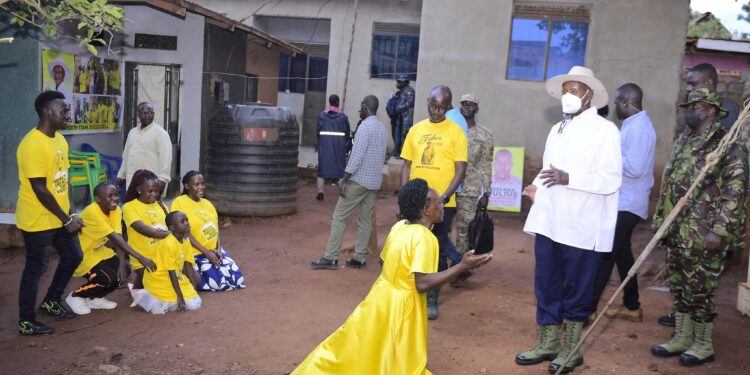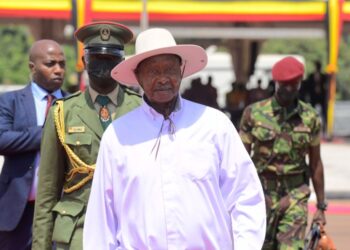In recent discourse surrounding President Yoweri Museveni’s manifesto theme, “Protecting the Gains,” I’ve observed a troubling pattern. Critics, often individuals regarded as discerning, learned, and intelligent, have launched superficial attacks, dismissing it as mere rhetoric without grasping its profound implications.
Meanwhile, a second group—those who truly comprehend the theme’s depth—remains silent, hindered by cowardice, shyness, or selfishness, failing to educate the uninformed. This theme isn’t empty sloganeering; it’s a call to safeguard Uganda’s hard-won economic and social advancements amid global turbulence. As we stand on October 14, 2025, the evidence is irrefutable: Uganda’s economy is not just surviving but thriving, thanks to steadfast leadership.
Consider the macroeconomic indicators. Uganda’s GDP growth is projected at 6.2% for FY2025, driven by robust agriculture and services sectors. This follows a 6.1% projection from the IMF, underscoring resilience. The Ugandan shilling (UGX) stands strong at approximately 3,432 to the USD, having appreciated 2.04% in the past month and 6.50% over longer periods, marking its firmest position in years. Average interest rates hover around 9.75%, with the Central Bank Rate at 6.50% end-of-period in some estimates, reflecting prudent monetary policy. Inflation remains subdued at 4%, well under double digits, allowing for stable consumer spending. These figures aren’t abstract—they represent real progress, with GDP per capita at around $935 and annual growth sustaining above 5%.
This growth didn’t materialize in a vacuum. Uganda achieved it mere years after the devastating COVID-19 pandemic and the 2025 Ebola outbreak, which ended officially on April 26, 2025, with only 12 confirmed cases and four deaths, thanks to swift containment. The country has since focused on recovery, providing mental health support to survivors and strengthening preparedness through regional simulations. Amid these health crises, the Russia-Ukraine war escalated global fuel and food prices, with wheat and fertilizers surging due to disrupted supplies—Russia and Ukraine being key exporters. Uganda felt the pinch, with commodity prices rising and trade hampered, yet inflation was contained through domestic production boosts. Compounding this, the World Bank suspended new loans in August 2023 over the Anti-Homosexuality Act, but resumed funding in June 2025 after Uganda implemented mitigation measures, approving projects in education and social protection.
President Museveni and his NRM team have “put in the midnight oil,” as the saying goes, rolling up sleeves to deliver results. The manifesto emphasizes consolidating gains in key sectors: coffee exports hit a record 7.93 million 60-kg bags in 2024/25, generating $2.2 billion and making Uganda Africa’s top exporter, surpassing Ethiopia. Gold exports reached $3.16 billion in 2023, continuing strong into 2025, while fish and industrial products added $102 million and more. Overall merchandise exports grew 27% to $2.13 billion by May 2025.
Oil exploration advances apace; the Tilenga and Kingfisher fields are on track for first oil in 2025, with over 100 wells drilled and 874 million barrels projected over 25 years. Though some delays push full production to 2026, output could hit 219,000 barrels per day by 2029.Infrastructure tells a similar story. Under Museveni, roads have expanded unprecedentedly, electrifying remote areas and boosting connectivity. Education has flourished with new seed secondary schools in sub-counties, while health centers like Paidha and Orivu are being upgraded to Level IV facilities. In districts like Pakwach and Apac, these investments have multiplied schools and hospitals, fostering wealth creation.Critics overlook these facts, but the gains are tangible. Museveni’s steadfast message—to protect and build on achievements in agriculture, mining, industry, and energy—resonates because it’s working.
Uganda’s 48 million people are reaping the benefits, with poverty alleviation and food security advancing despite odds. To the silent knowers: speak up. To the critics: look deeper. Protecting the gains isn’t optional; it’s essential for Uganda’s future.
Do you have a story in your community or an opinion to share with us: Email us at editorial@watchdoguganda.com














